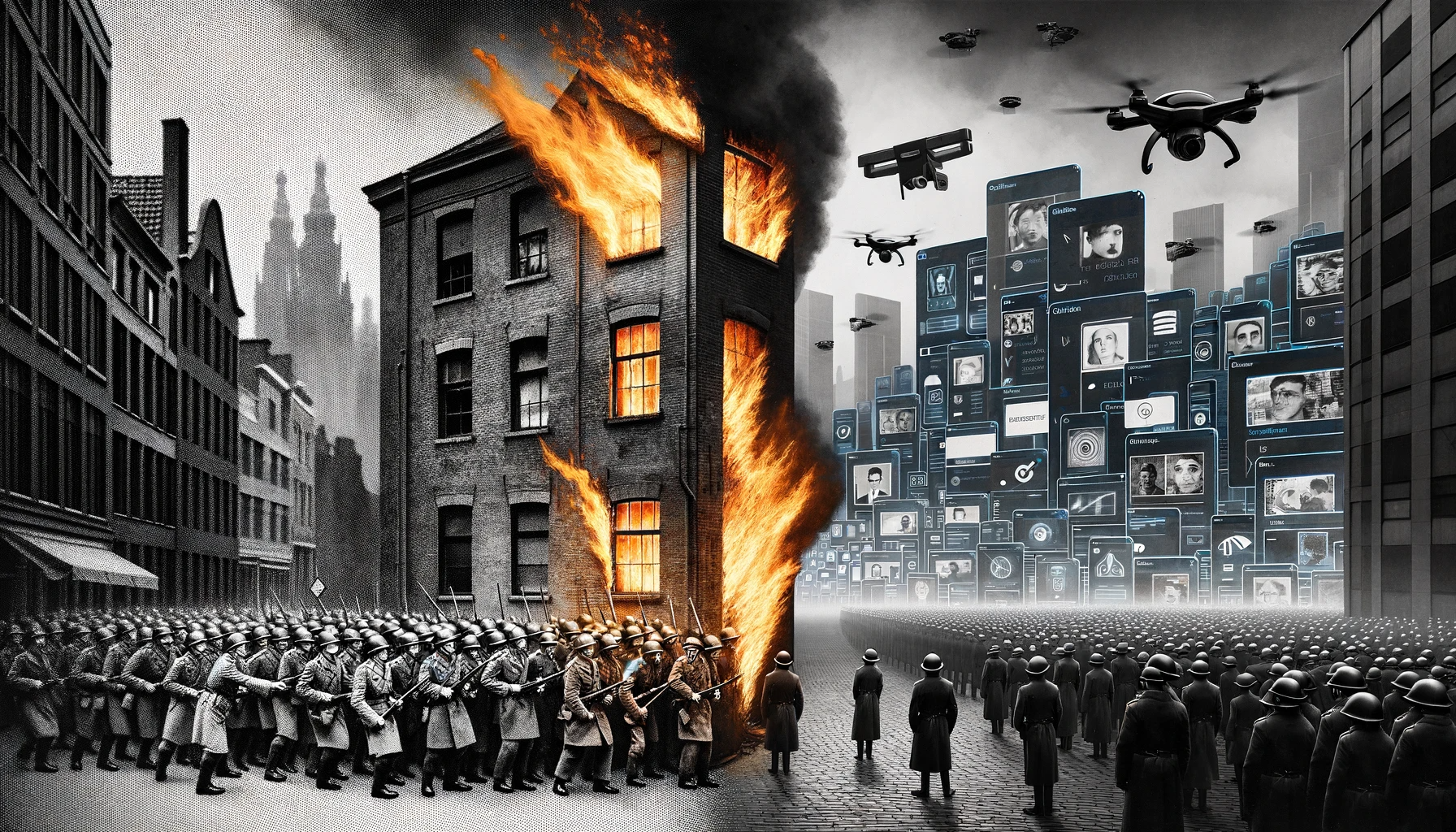The phrase ‘I have nothing to hide’ reflects a dangerous naivety reminiscent of a dark chapter in history, the Second World War, when it suddenly turned out that we did have something to hide. The former Artis concert hall housed Amsterdam’s population register with details of 70,000 Jews that the occupiers wanted to use. Dressed as policemen, a resistance group set fire on 27 March 1943, after which the fire brigade deliberately ‘put out’ the fire slowly. In this way, the resistance fighters tried to destroy the files.
After Second World War, the realisation dawned that it was partly thanks to the ‘perfect Jewish administration‘ that a large part of the Jewish community in the Netherlands could be tracked down and deported by the occupying forces. An important lesson: privacy and personal data are worth protecting. ‘Nie wieder’ also meant: never again registers containing personal data that, once in the wrong hands, could have disastrous consequences.
And that is why, in 1948, the Universal Declaration of Human Rights established that no one should be subjected to ‘arbitrary interference in his personal affairs’. Since 1950, ‘privacy’ has been included in the Van Dale dictionary. In 1953, 1983 and 2009, the protection of privacy was reaffirmed in the ECHR, the Dutch Constitution, and the European Charter. In 2018, the GDPR came into force. But now that humans have these fundamental rights, a worrying trend is emerging. While the number of serious crimes is at an all-time low, according to criminologists, we are reacting increasingly ‘hysterically‘ to the fewer and fewer remaining threats, to the detriment of those hard-won fundamental rights.
Despite lacking convincing scientific evidence of effectiveness, we continue to clutter the country with more and more cameras. Campsites use facial recognition. Municipalities place “highly sensitive sound equipment” on the streets, scan license plates of parked cars with scanning cars, and track citizens’ phones via Wi-Fi signals. Landlords monitor their tenants with drones. All transport movements are recorded: ‘public’ transport requires a chip card and airline passengers are recorded in international databases.
And the end of the fundamental rights sell-off is not yet in sight. From 6 October, people wishing to travel to the European Union will have to give a face scan and fingerprints. Dutch politicians want to introduce an identification requirement for social media. To detect criminal offences, the European Commission wants to preventively scan the private digital messages of all Europeans, including photos and videos. Including yours.
Fundamental rights? Sure, but have you had your face scanned yet? Freedom of speech? Sure, but upload a copy of your passport first. Innocent until proven guilty? Yes, but we will listen in on all your conversations. Walking the streets anonymously? Anonymous, until someone presses the facial recognition button. ‘You have nothing to hide, right?’
Yes, until the occupiers suddenly turn up on your doorstep. Resistance fighters? All communications linked to your identity are being scanned. Dressing up as police officers? Facial recognition. Setting physical records on fire? What physical records? And modern electronic records contain not less, but much more, much more sensitive data, of many more people. Useful for security? According to Professor Geoffrey Stone, the US secret services, which collected this kind of data for years, have never been able to use it to prevent a single attack.
The good news is: we can turn the tide. The Netherlands is one of the safest places on earth. We can opt for safer, more humane methods of security and control. More cops instead of more cameras. More BOAs, instead of more scanning cars. Tackling hate algorithms instead of anonymity. Reducing databases to proportions that are manageable and meaningful, rather than letting them grow endlessly. It is a choice between a future where technology imposes a regime of fear, distrust and control, and a future where democracy is built on respect, trust and freedom.
And no, this is not a call to return to a romantic past; this is a progressive march towards a future where technology is our ally, not our observing guardian. It is a call for a future where security and freedom go hand in hand and where the strength of our democracy lies not in the number of drones watching, but in the number of hearts trusting each other. It is not a utopian dream, but a realistic option, provided we have the courage and wisdom to choose it. But for how long will it remain a realistic option? History has taught us that it is easier to lose rights than to regain them. Let us ensure that future generations do not have to say the same thing about choices made by us.
This column was written at the request of the Volkskrant.

Leave a Reply